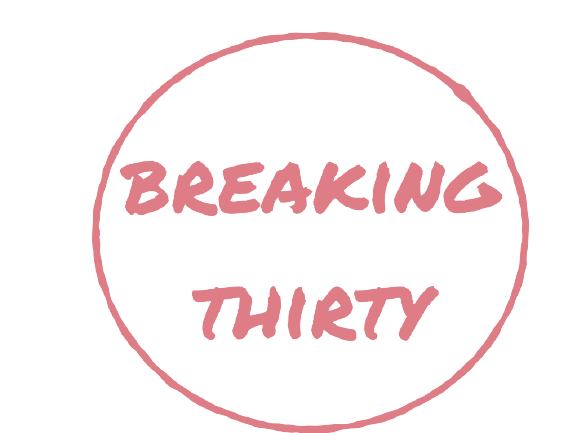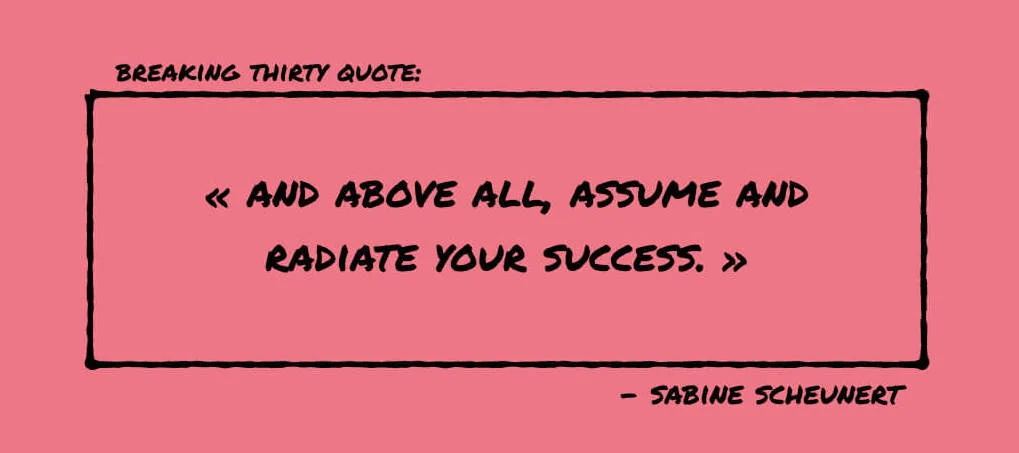Five steps to find a mentor: how I did it and how you can too
Lately, I’ve been feeling in need of a mentor. I’m doing a PhD in cryptography and it’s very difficult to find female role models in the tech industry. Last month I attended the Ada Lovelace Festival in Berlin, a conference for women in tech. I went there not just to get an idea of where the IT industry is heading to. I also hoped to find role models I could look at for guidance. Maybe the Ada Lovelace people would organise a sort for mentorship program I could apply for. Who knew? In the worst case scenario, I would have met and talked to inspiring folks.
There were many women at the top levels of important tech companies that came to speak and share their vision about the future of their industries. One talk that really stood out was the one given by Sabine Scheunert, Vice President at Mercedes-Benz Cars. She shared the most vulnerable moments of her career, when she moved to China alone with a six-month-old baby and accepted the challenge to become the first female CEO in the automotive industry of that country. At the end of her talk, she announced a mentorship program for women. Anyone could apply by electronically submitting answers to three questions she showed on the slide. I was stoked and, of course, I applied to the mentorship program.
Fast forward one month to the clumsily receiving congratulations for winning the only mentoring spot. I was speechless.
No, that’s not true. I wasn’t speechless.When I’m in uncomfortable situations and I don’t know what to do I usually talk way too much and never say the right thing. For the record, when Sabine Scheunert’s assistant called me to announce that I won, my response was something like: “Oh my God, thank you so much! Thank you thank you thank you! I’m so happy. You just made my day with this news. You know: I’m about to give a talk at the Royal Holloway, University of London, which actually is located more than one hour away from London. I woke up at 5am to catch the Eurostar from Paris to King’s Cross. I didn’t see the fake Harry Potter’s luggage trolley embedded into platform 9 3/4 though. Then I took two metro and one train to come here. And I got messed up with the jet leg and I thought the journey on the train would have lasted one hour and forty minutes and instead it was just forty minutes. So I fell asleep and I missed my stop. I was awakened by a call from the host who organised my talk the university. He asked why I wasn’t at the train station, since he was there to pick me up. I had to wait to reach the next stop and why I was standing there feeling a total fraud I even read “imposter use” instead of “improper use” in the “In case of an Emergency” tag. You know, the imposter syndrome… And now I’m here, at the next train station waiting for the train to go back, feeling like a total idiot. So yes, maybe I’m not an idiot since I won the mentorship program after all. You gave me the confidence to still be on stage and give the talk and not hide myself in the restroom. Thank you!”
Luckily, all that blabbing on didn’t lead to them deciding they’d made a mistake and were now going to give the mentorship program position to somebody else… So I guess they’d experienced worse calls in the past.
I’m so happy she chose me. She saw something in me and she chose me! Now that the initial excitement is beginning to settle, I can see there were a few beliefs and behaviours that shaped the experience and my application. Hopefully these insights can help you if you’re applying to be a mentee.
1) Sharing is a superpower. As soon as the mentorship program was announced, I turned to my colleagues and said we should hold one another accountable to actually complete the application. Then I took a picture of that slide and sent it to all my other female PhD colleagues who couldn’t join the conference and explained that there was this cool mentorship program and they should apply.
2) Embrace the bumblebee effect. In her talk at the Ada Lovelace Festival, Sabine Scheunert discussed the power of the bumblebee effect and how she lives by it. The bumblebee isn’t supposed to fly because her wings are too small to support her heavy body. But the bumblebee flies despite the laws of physics being against her because she isn’t aware of them. I had never heard of the bumble-bee effect before so let me brag a little about this new scientific term that I just learned with respect to the application for the mentorship program. I applied without knowing that: 1) there was only one spot available and, 2) the competition was strong. I thought there were at least a dozen positions and that the mentorship program would involve gathering together once a month on a telco rather than in-person meetings. Instead, many already successful women in the tech and automotive industry applied. But it was only once I received the phone call in that remote train station between London and the middle of nowhere that I realized how big of an achievement this was. So yeah, my interpretation of the bumble-bee effect is basically this: If I had known my odds, I would probably have never applied! Sometimes not knowing is best. :)
3) Stay detached from the outcome. Many days passed after the deadline and still no notification in my inbox. I didn’t realise that though, until a friend of mine reached out to ask if I’d heard back yet. Well, she’s a super busy wonder woman, I thought, so I’m not really expecting a response right away. I guess she has more important things to take care of than this, or I didn’t get in of course she doesn’t have the bandwidth to reach out to everyone. That’s fine. I already felt blessed for having the chance to be inspired by her and thrilled and excited just for applying. I could benefit already from my fair share of good vibes, no matter the outcome.
4) Share your success and spread the joy. As soon as I got the call, I couldn’t stay still or keep my mouth shut. I was walking up and down the platform waiting for the train to bring me back to the right spot because I couldn’t do a happy dance in public. But I told everybody about it! Starting with the host of the talk at the university, who was still waiting for me at the train station. Then my boyfriend, parents, sister, friends… When I went back home to Germany, I told my boss, the boss of my boss, colleagues, random people in the corridor at work, my German teacher. And if my German was just a bit better, I would probably have shared this news with some random folks at the supermarket. It was too good not to share!
5) Celebrate. I’m not good at celebrating my achievements. The word “celebrate” doesn’t even cross my mind when I achieve nice results. But I’m learning to celebrate. A friend of mine was so happy for me that she suggested to celebrate together. So I’m inviting her for dinner next week. Pick that one friend who is so happy for you that she can’t help hugging you and go do something fun together.
There you have it… five ideas to help you succeed in applying for and getting accepted to a mentorship program for women in tech, or women in business, or women in whatever your passion is. (And, of course, remember to fill out the actual application!)
Now I’d love to hear from you: have you ever applied for a mentorship program or something similar? What was that about? Do you have other suggestions besides the ones I listed above? Or: tell me about that one time where the bumblebee effect played an important role for you. I’m looking forward to read in the comments below. If you want to know more about my progress with the mentorship program, then please subscribe to the Breaking Thirty Newsletter for updates.




